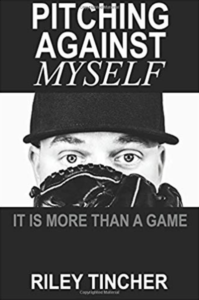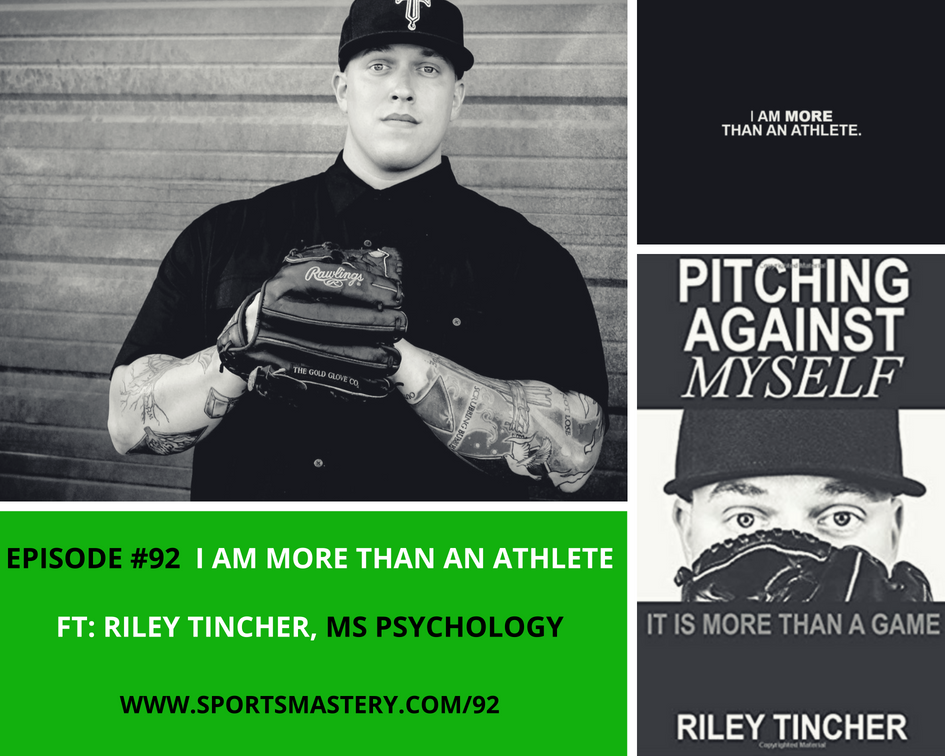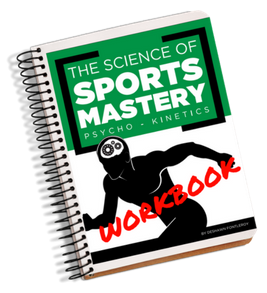Riley Tincher is an All-American pitcher turned author. He’s also a mental conditioning coach with a master’s degree in psychology from Baylor University. He’s the owner of Coachability – a mentorship program that serves athletes, at every level (youth, high school, college, professional, and Olympic), all throughout the country. Coachability was created to provide athletes a safe haven they can go to, to talk to someone who has been through what they are going through. It was also created to teach athletes the principles to succeed in sports, and more importantly, in life after sports. It is the mentorship program Riley wished existed when he was younger.
In this episode, Riley Tincher shares his personal story and life lessons. He also explores his personal battles with:
- Identity crisis
- Depression
- Suicide
Riley discusses the meaning behind the message, “your are more than an athlete”.
One of the most powerful testimonies was given by former NFL athlete Jonathan Martin who described the role of emotional debilitation in his decision to retire from professional football:
“Your job leads you to (try to) kill yourself on multiple occasions. You either sleep 12, 14, 16 hours a day when you can, or not at all. You drink too much, smoke weed constantly, have trouble focusing on your job… But one day you realize how absurd your current mindset is, that this shit doesn’t matter… nothing matters besides your family, a few close friends, and your own personal happiness.”
My conversation with Riley Tincher stresses the need to talk about depression and suicide among athletes.
In a study of depression among current and former collegiate athletes, 17% endorsed symptoms consistent with depression. In discussing depression among professional athletes author Alfie Potts Harmer reported that athletes have among the highest rates of mental illness with as many as 25% experiencing depression.
It remains clear that the mental health needs of this population are inadequately addressed.
Seeking Help
Despite exposure to stressors known to increase susceptibility to mental health issues, the help-seeking behaviors of these individuals remains alarmingly low. One study revealed that members of this group are less likely to report mental health problems and “less likely to report having received psychological or mental health services from a variety of providers including counselors and psychiatrist.” This study suggest that coaches, trainers and those authority figures associated with the lives of athletes become vigilant in promoting that athletes in need seek mental health services.
Hypermasculinity often prevalent in sports culture seems to negatively impact help-seeking. A primary idea perpetuated by this hypermasculinity is the idea that ‘real men’ do not need help and acknowledging vulnerable emotions such as sadness, grief or fear indicate weakness. ‘Real men’ buck up, get up and move on with things. Each of these notions provide cognitive barriers to reaching out for assistance. Individuals who internalize these ideas have a higher propensity to struggle reaching out for help, and all too often those around them are unaware of the suffering being endured. It proves that traditional masculinity is the enemy of mental health.
Some individuals choose to cope with their emotional pain through externalizing behavior such as acting out. This can make recognizing depression challenging for family, friends, loved ones, coaches and trainers. Dr. Michele Leno revealed that high-risk behavior such as using drugs or engaging in violence can mask psychological dysfunction. Her study also revealed that family and social support are among the best protective factors to emotional debilitation for athletes. As Dr. Leno reported “athletes may be perceived as successful, wealthy, superman. However, career pressures, and struggles may be camouflaged”.
Unique Stressors
My conversation with Riley Tincher illustrates that professional and collegiate athletes experience clinical depression for reasons consistent with the general population. This includes lack of social support, feelings of hopelessness, grief, sadness, isolation, psycho social adjustment challenges, chemical imbalance, drug related issues, and overwhelming anxiety among other symptoms. I believe, the intense pressure athletes face to ‘win’ can add significant psychological stress.
Riley can be reached at the information below:





 Your Information is Safe
Your Information is Safe Secure Checkout
Secure Checkout





 6 Week Mastermind
6 Week Mastermind